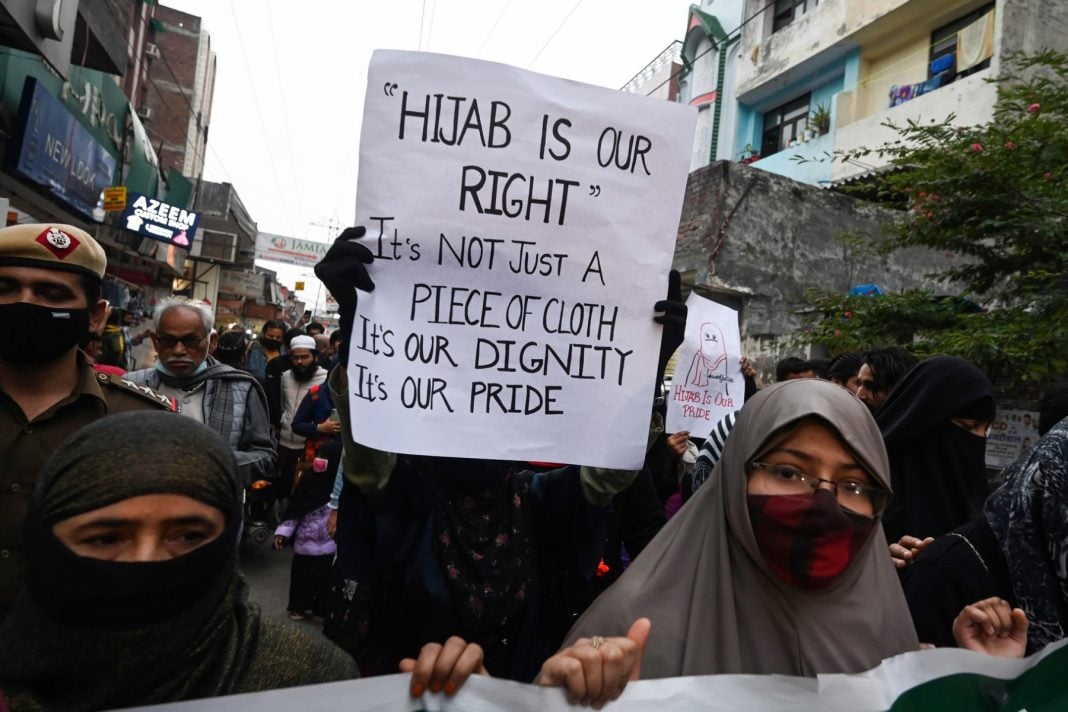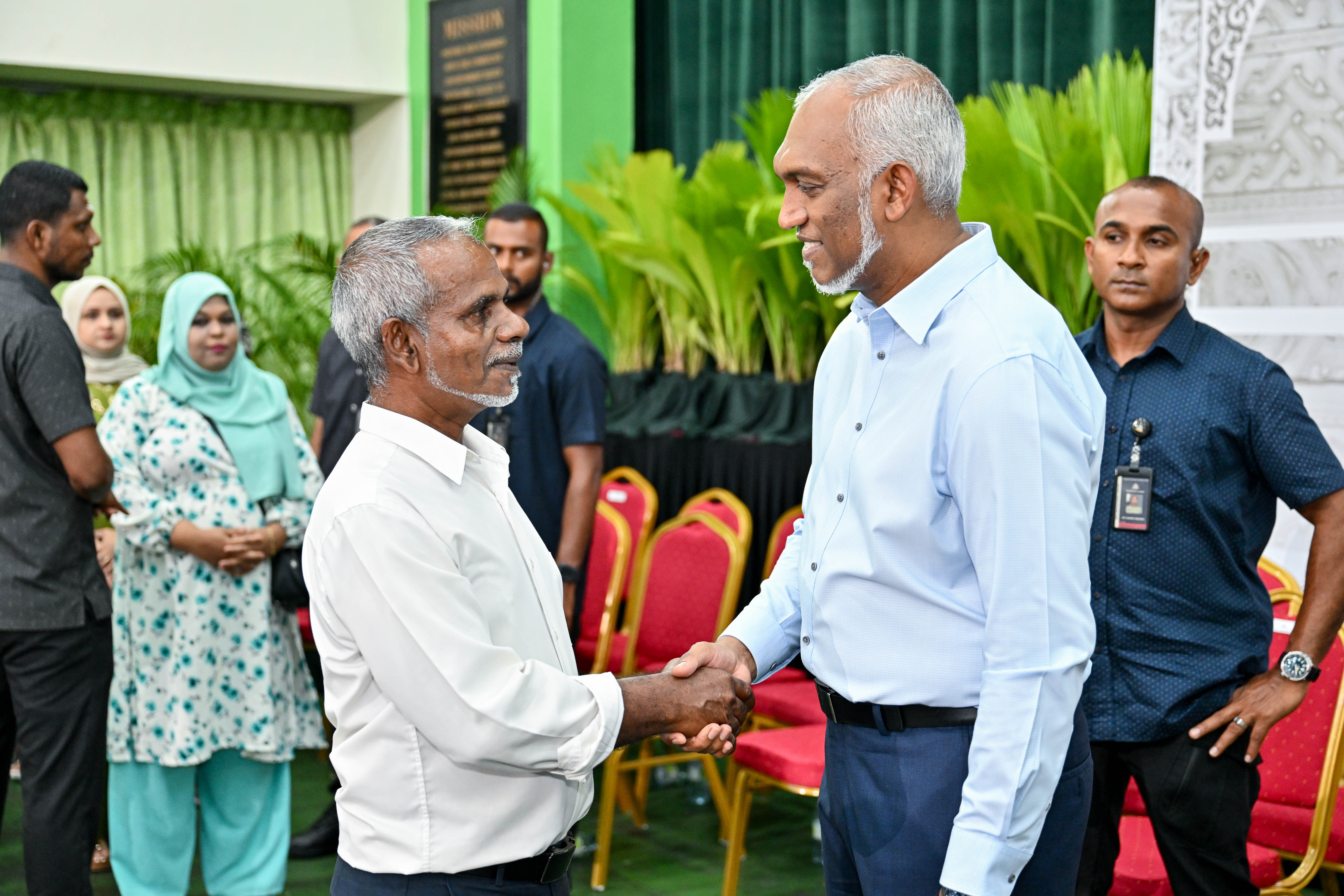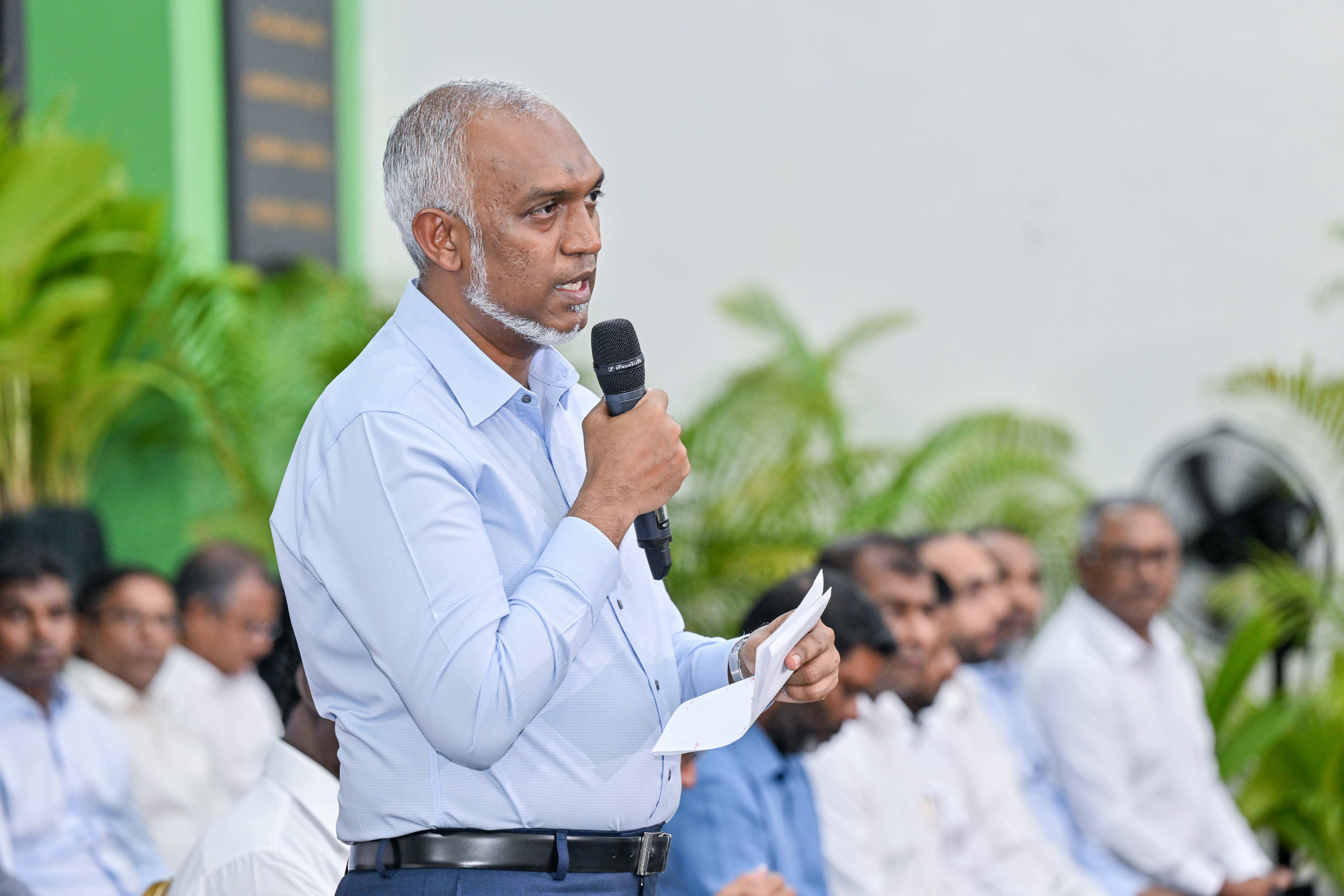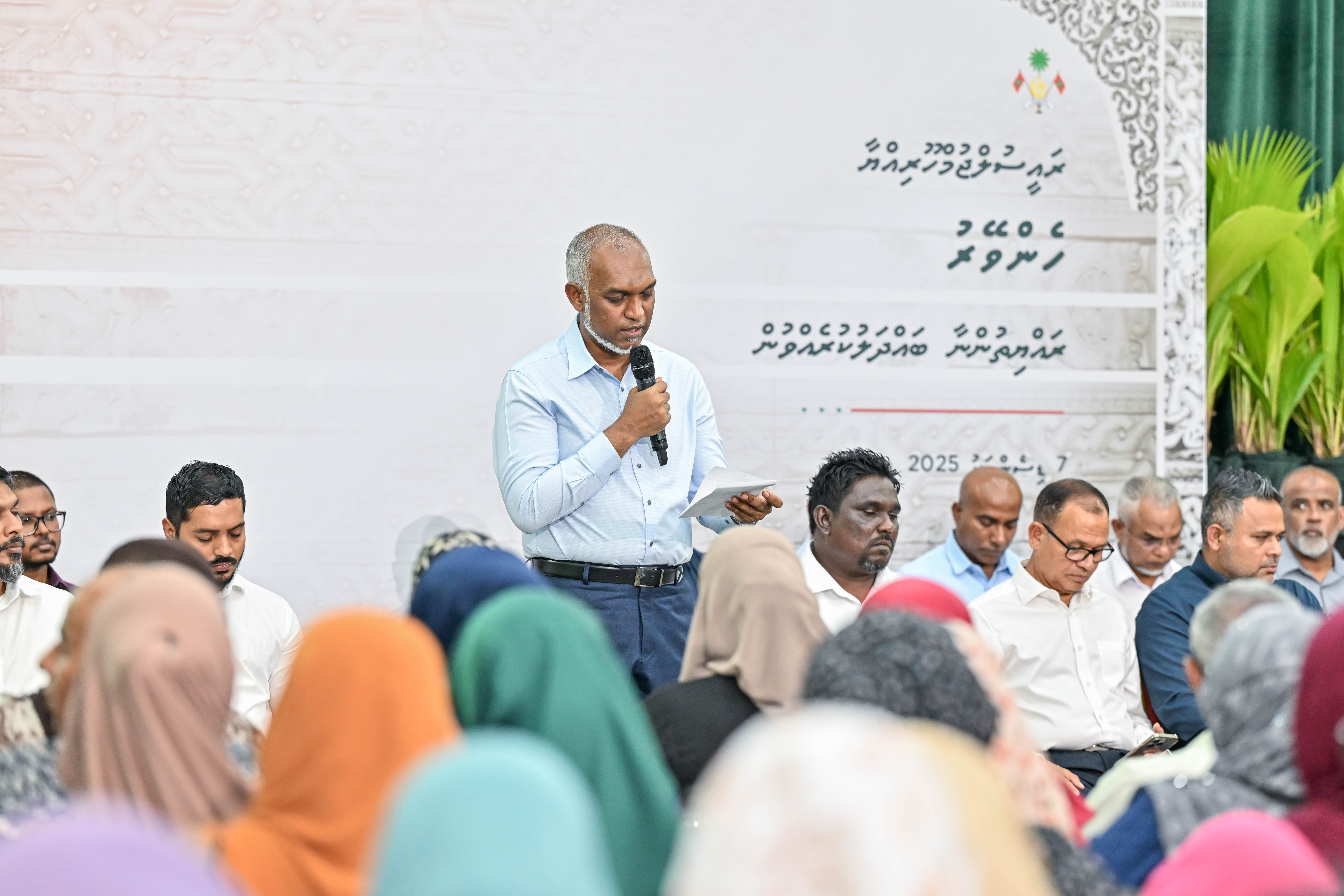All gatherings and protests near educational institutions were banned in Bengaluru for two weeks amid the escalating row over hijabs in schools and colleges of Karnataka.
The move comes just 24 hours after all high schools in Karnataka state closed their gates for the remainder of the week as a row over an Islamic headscarf ban intensified.
The ban on Islamic headscarves has outraged Muslim students who say it’s an attack on their faith enshrined in India’s secular constitution, while Hindu right-wing groups have tried to prevent Muslim women from entering educational institutions causing communal tension.
For four days a group of 28 Muslim girls stood in protest in front of the Junior Pre-University college in the Karnataka state after they were denied entry for wearing hijab – an issue that has snowballed to other colleges in the southern state.
Karnataka state has also shut high schools and colleges for three days, after a row over Muslim women wearing headscarves in the classroom that has gained international attention. Incidents of stone-pelting and use of force by police were reported on Tuesday as protests by students spread to more colleges, prompting Chief Minister Basavaraj Bommai to declare a three-day holiday for all educational institutions in order "to maintain peace and harmony".
Visuals of students being shut outside the gate by several colleges in the state have caused mounting outrage among the Muslim minority and triggered protests since last week, with rights groups alleging that the move violates the rights of Muslim students to practice their religion and access education.
Protests have now spread across the country.
Hundreds of people demonstrated against the ban in Kolkata and Chennai, two of India's largest cities, and in Hyderabad. And the Pakistani government summoned the Indian ambassador to formally convey its concern.
The controversy over hijab first started a month back when a group of six Muslim students at a government-run women’s college in Udupi district was denied entry into their classrooms because the administration alleged they were defying the rules by wearing the hijab. The girls, however, defiantly resisted the pressure even as they were made to sit outside the classrooms on stairs.
The move comes just 24 hours after all high schools in Karnataka state closed their gates for the remainder of the week as a row over an Islamic headscarf ban intensified.
The ban on Islamic headscarves has outraged Muslim students who say it’s an attack on their faith enshrined in India’s secular constitution, while Hindu right-wing groups have tried to prevent Muslim women from entering educational institutions causing communal tension.
For four days a group of 28 Muslim girls stood in protest in front of the Junior Pre-University college in the Karnataka state after they were denied entry for wearing hijab – an issue that has snowballed to other colleges in the southern state.
Karnataka state has also shut high schools and colleges for three days, after a row over Muslim women wearing headscarves in the classroom that has gained international attention. Incidents of stone-pelting and use of force by police were reported on Tuesday as protests by students spread to more colleges, prompting Chief Minister Basavaraj Bommai to declare a three-day holiday for all educational institutions in order "to maintain peace and harmony".
Visuals of students being shut outside the gate by several colleges in the state have caused mounting outrage among the Muslim minority and triggered protests since last week, with rights groups alleging that the move violates the rights of Muslim students to practice their religion and access education.
Protests have now spread across the country.
Hundreds of people demonstrated against the ban in Kolkata and Chennai, two of India's largest cities, and in Hyderabad. And the Pakistani government summoned the Indian ambassador to formally convey its concern.
The controversy over hijab first started a month back when a group of six Muslim students at a government-run women’s college in Udupi district was denied entry into their classrooms because the administration alleged they were defying the rules by wearing the hijab. The girls, however, defiantly resisted the pressure even as they were made to sit outside the classrooms on stairs.


















